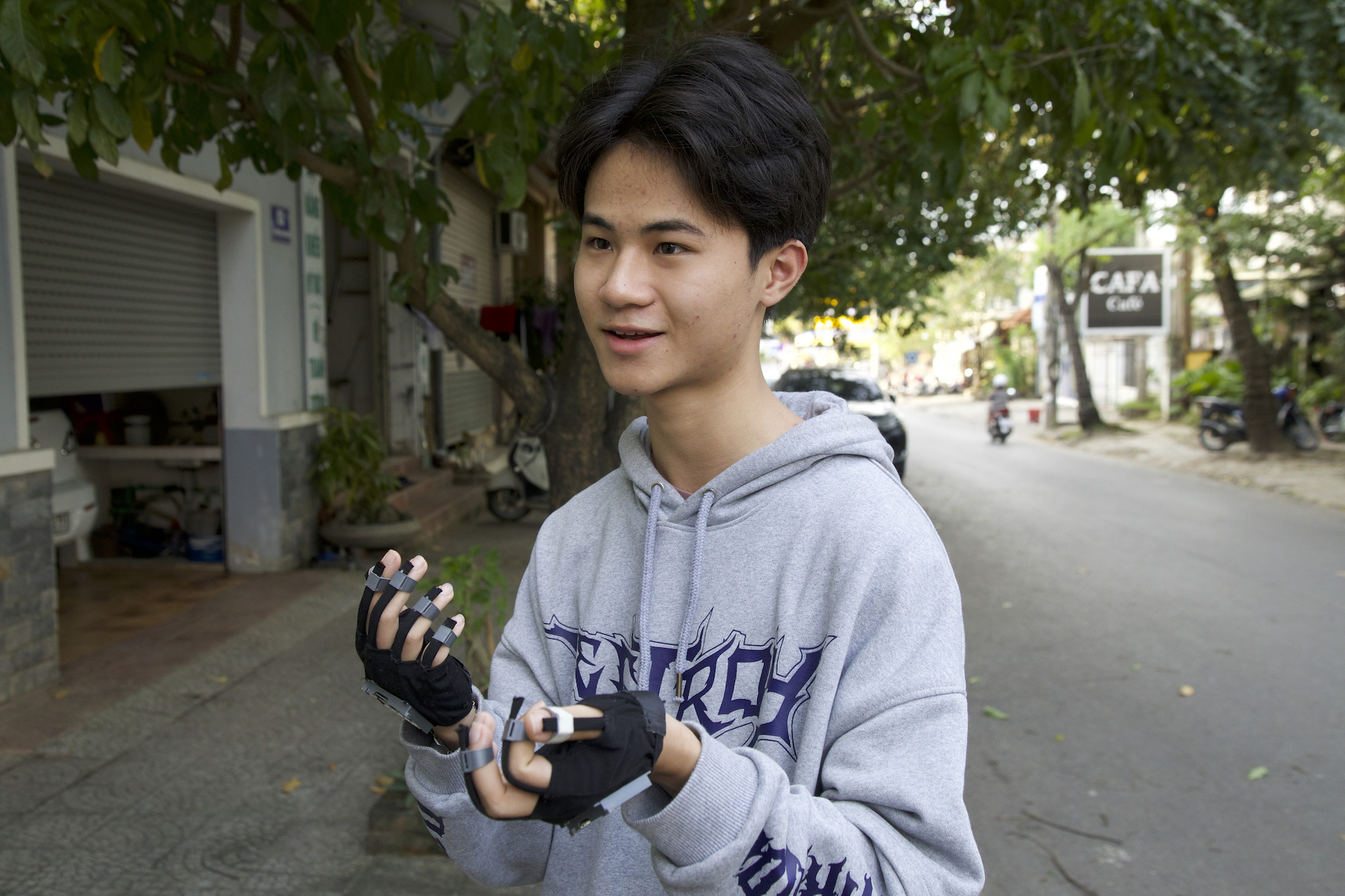With the help of artificial intelligence (AI), an 11th grade student from Quang Tri Province, north-central Vietnam has designed gloves that can help transform sign language into audible speech, allowing hearing-impaired and hearing individuals to better communicate with one another in both English and Vietnamese.
Tran Ngoc Long, an 11th-grade student at Le Quy Don High School for the Gifted in Dong Ha City, Quang Tri Province, may be young, but he already has an ambitious life goal: to improve daily communication between those who can hear and those who cannot through the use of specially designed gloves.
Long first began working on his special gloves for the hearing-impaired about six months ago when he stumbled upon the concept of translation gloves.
Through his research, he discovered that many of the translation gloves available in the market had limitations, such as their capability to translate only individual words.
After several months of effort, Long successfully designed his own pair of gloves that could surpass these limitations.
“The knowledge was entirely new [to me], and there were not many reference materials available," Long said.
"I had to get some assistance from my teacher to research and develop [the gloves].”
Using sensors that are able to detect when the fingers in the gloves move, Long’s translation devices allow full sentences to be translated from sign language into Vietnamese or English.
These bendable sensors were produced using 3D printing, while the signal processing board of the gloves was sourced from China.
The gloves incorporate a smartphone application that employs AI to translate finger and arm gestures into complete sentences.
Thus, an individual need only wear the gloves and use sign language for full sentences to show up on a smartphone.
This application also facilitates two-way communication by converting spoken words from normal individuals into text for deaf people to read.
Ho Dac Vin, an official at the Quang Tri Department of Education and Training, praised Long’s gloves for their natural language handling and ability to effectively convert single words into full sentences.
Long’s project recently clinched two first prizes at a science and technology competition for high school students organized by the provincial Department of Education and Training and a student start-up competition held by the provincial Department of Science and Technology.
The product is set to represent Quang Tri Province in two national competitions.
Looking ahead, Long plans to refine the product to enhance stability and accommodate various hand sizes.
The finished product is budget-friendly and costs less than VND2 million (US$81).
“I aspire to secure investment opportunities for the development of the project, promote the product, and facilitate more convenient communication for deaf individuals in their daily lives," Long said.
Like us on Facebook or follow us on Twitter to get the latest news about Vietnam!


















































